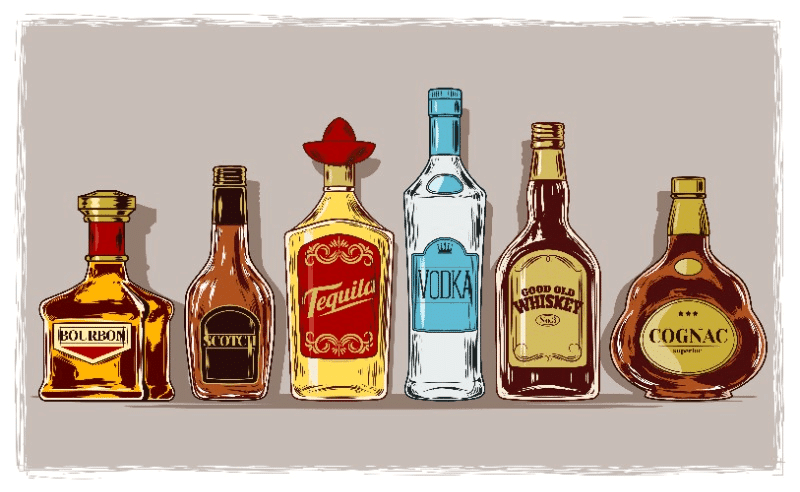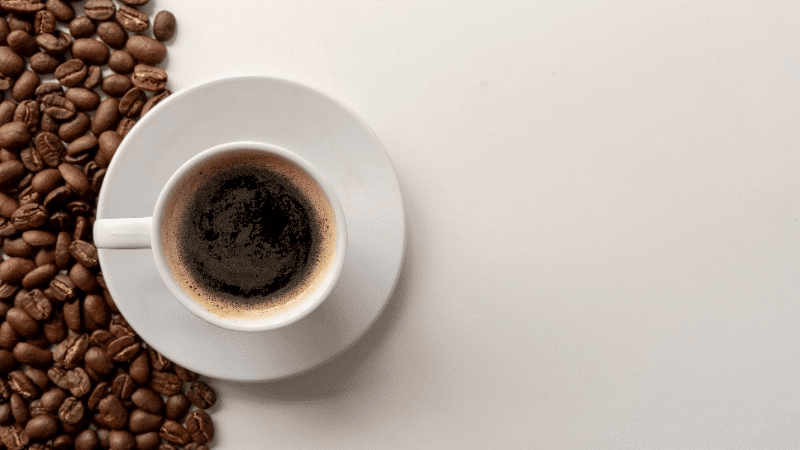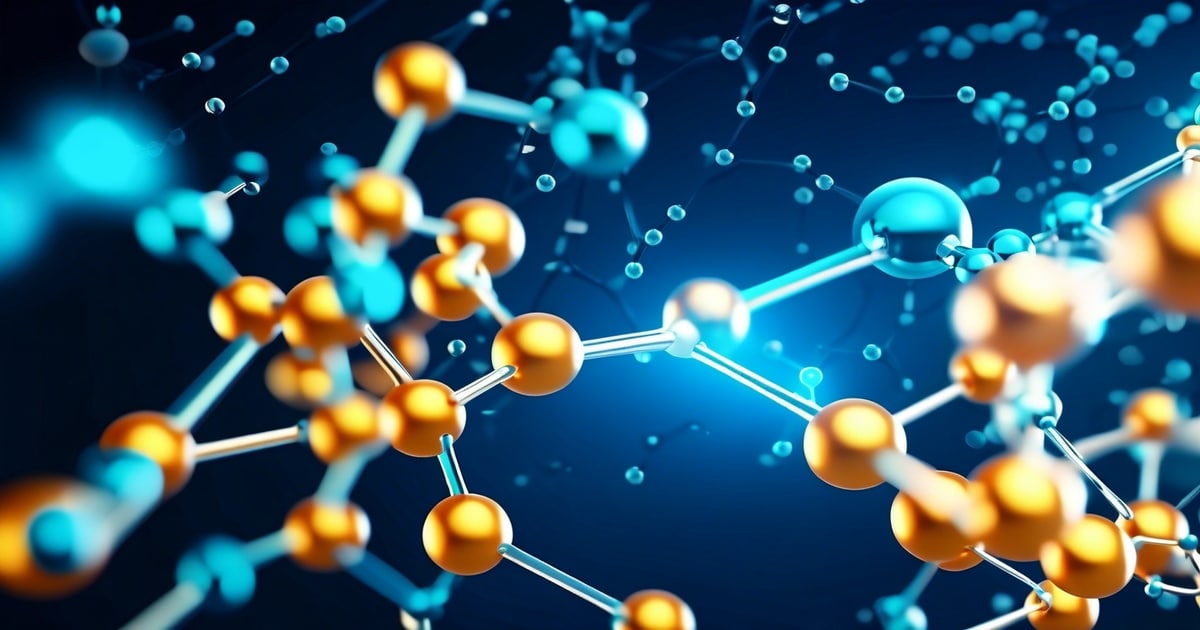Key Takeaways
-
Be cautious when combining GABA supplements with benzodiazepines, as it may lead to excessive sedation, respiratory depression, and adverse events.
-
Avoid mixing GABA supplements with barbiturates due to the potential for amplified central nervous system depression.
-
Exercise caution when using GABA supplements alongside antidepressants, as it could result in increased sedation and drowsiness.
-
Consult a healthcare professional before combining GABA supplements with anticonvulsants to prevent potential adverse effects on the central nervous system.
-
Refrain from consuming alcohol while taking GABA supplements, as it may intensify the sedative effects and impair cognitive function.
-
Use GABA supplements cautiously with opioid pain medications to avoid excessive sedation, respiratory depression, and other side effects.
-
Be informed about drug interactions with GABA!
Benzodiazepines
Common benzodiazepines such as Xanax, Valium, and Ativan are widely prescribed for anxiety disorders and other conditions. They work by enhancing the effects of GABA in the brain, resulting in a calming effect. However, when combined with other GABA-affecting substances like alcohol or opioids, they can lead to severe drowsiness and dizziness.
Benzodiazepines’ pharmacol interaction with GABA is crucial to their mechanism of action. By binding to specific receptors in the brain that enhance the inhibitory actions of GABA, benzodiazepines exert their anxiolytic, sedative-hypnotic, and muscle relaxant effects. This interaction underscores the pharmacol potency but also highlights the potential risks associated with concomitant use of other substances affecting GABA function.
The combination of benzodiazepines with alcohol or opioids poses a significant risk due to additive central nervous system depression. Statistics show that nearly 30% of opioid overdose deaths involve concurrent use of benzodiazepines. This emphasizes the importance of healthcare providers thoroughly assessing participants’ medication regimens and educating them about pharmacol interactions.
Moreover, it’s essential for participants using benzodiazepines to be aware of potential drug interactions not only with prescription medications but also over-the-counter drugs and herbal supplements affecting GABA function.
Barbiturates
Barbiturates, such as phenobarbital, are known to increase GABA activity in the brain. This mechanism makes them effective in treating conditions like anxiety, insomnia, and seizures. However, it’s crucial to note that these drugs also pose significant risks.
When used improperly or in excessive amounts, barbiturates can lead to severe respiratory depression and coma. In fact, according to case reports, even small overdoses of barbiturates can be fatal due to their impact on the central nervous system.
One study found that a combination of phenobarbital with other medications could result in adverse drug interactions leading to life-threatening situations. This highlights the importance of considering potential interactions when prescribing barbiturates alongside other drugs.
It’s essential for healthcare professionals and patients alike to be aware of pharmacologial dangers and exercise caution when using barbiturates. Blind pharmacol trials have shown how individuals react differently to these medications based on factors such as age and overall health status.
Antidepressants
Some antidepressants, such as SSRIs and SNRIs, can lead to alterations in GABA levels. This interaction is significant because GABA, an inhibitory neurotransmitter, plays a crucial role in mood regulation.
Tricyclic antidepressants like amitriptyline have been found to impact GABA receptors. This pharmacological effect may influence the effectiveness of GABA signaling in the brain, potentially affecting mood and anxiety levels in patients.
When combined with other drugs that affect GABA and serotonin, there is a potential risk for serotonin syndrome. Serotonin syndrome is characterized by a range of symptoms including confusion, agitation, rapid heart rate, and high blood pressure. Therefore, it’s essential for healthcare providers to carefully monitor patients who are prescribed both antidepressants and other medications affecting GABA function.
Anticonvulsants
Anticonvulsants, such as gabapentin, are known to modulate GABA levels in the brain. Primarily used for managing epilepsy and neuropathic pain, these medications interact with the body’s GABA receptors to reduce abnormal electrical activity in the brain.
When combined with other drugs that affect GABA receptors, anticonvulsants can lead to side effects like dizziness and drowsiness. This is particularly important when considering the potential interactions of anticonvulsants with other medications or substances that impact GABA function.
For instance, combining anticonvulsants with alcohol or sedatives can intensify their central nervous system depressant effects. It’s crucial for healthcare providers to view these interactions when prescribing medications to prevent adverse reactions in patients.
Alcohol

When combined with GABA-affecting drugs, alcohol can enhance the inhibitory effects of GABA in the brain. This interaction increases sedative effects, which can be risky when mixed with other substances that affect GABA activity. The combination of alcohol and GABA-affecting substances also poses a significant risk of respiratory depression and overdose.
For instance, when individuals consume alcohol along with benzodiazepines or barbiturates, both of which affect GABA receptors, the sedative effects are intensified. This could lead to severe drowsiness, breathing difficulties, coma, or even death due to respiratory depression.
In a study published in the “Journal of Clinical Psychiatry,” researchers found that simultaneous use of alcohol and prescription medications affecting GABA significantly increased the odds for emergency department visits due to drug-related causes. Specifically, this combination led to an increased likelihood of experiencing central nervous system depression symptoms such as confusion and impaired coordination.
Moreover, combining these substances may also increase the potential for addiction and substance abuse disorders due to their reinforcing properties on the brain’s reward system.
It is crucial for healthcare professionals to educate patients about these interactions and advise against consuming alcohol while taking medications that impact GABA function. Individuals should always consult their healthcare providers before combining alcohol with any medication affecting GABA receptors.
Opioid pain medications
Opioids, such as oxycodone, have the potential to interact with GABAergic pathways. When combined with other drugs affecting GABA receptors, they can induce profound sedation and respiratory depression. This interaction significantly increases the risk of overdose and death.
The combination of opioids and GABA-affecting drugs can lead to a synergistic effect on the central nervous system, intensifying their depressive effects on respiration. For instance, benzodiazepines, which also act on GABA receptors, are frequently prescribed alongside opioids for pain management but pose a high risk when used together due to their additive impact on respiratory function.
According to a study published in JAMA Network Open, nearly 30% of opioid overdoses involve concurrent use of benzodiazepines or other central nervous system depressants that affect GABA receptors. This alarming statistic underscores the critical need for healthcare providers to be vigilant about co-prescribing these medications.
In light of these interactions, it is imperative for healthcare professionals and patients alike to exercise caution when using opioids in conjunction with other substances that influence GABA pathways. Comprehensive patient education regarding the risks associated with combining these medications is crucial in preventing potentially fatal outcomes.
Blood pressure medications
Calcium channel blockers, commonly prescribed for high blood pressure, have the potential to influence GABA neurotransmission. These medications can impact the release of GABA, a crucial inhibitory neurotransmitter in the brain. This interaction may lead to changes in cognitive function and could potentially affect hypertensive subjects who are also using medications that target GABA receptors.
Similarly, beta-blockers, another class of drugs used to manage hypertension, can potentially affect GABA receptor function. Beta-blockers work by blocking adrenaline from binding to beta receptors on nerves. This action might interfere with normal GABA receptor activity and signaling in the brain.
When blood pressure medications are combined with other substances that affect GABA transmission, such as benzodiazepines or alcohol, there is an increased risk of excessive sedation and central nervous system depression. This heightened sedative effect poses a significant concern for individuals using multiple drugs that interact with the GABA system concurrently.
It’s crucial for healthcare providers to be aware of these potential interactions when managing hypertensive patients who may also require interventions targeting their neurological health. Understanding how blood pressure medications interface with the intricate network of neurotransmitters like GABA is essential for ensuring comprehensive patient care.
Caffeine

Caffeine, a well-known stimulant, blocks adenosine receptors in the brain, resulting in increased alertness and reduced drowsiness. However, it does not directly impact GABA activity. When combined with GABA-modulating drugs, caffeine may counteract some of the sedative effects due to its stimulating properties.
High caffeine intake can lead to jitteriness and anxiety when combined with certain medications that affect GABA function. For example, when taken alongside anti-anxiety medications or sedatives that enhance GABA’s inhibitory effects on the brain, excessive caffeine consumption might interfere with these drugs’ intended calming effects.
It’s important to note that individual responses to caffeine and drug interactions can vary widely based on factors such as metabolism and body weight. Thus, consulting a healthcare professional about potential drug interactions is crucial for anyone regularly consuming caffeine or taking medications affecting the GABA system.
Theophylline
Theophylline, a bronchodilator, does not directly impact GABA signaling. However, when combined with other GABA-influencing drugs, it can lead to an increased heart rate and tremors.
When Theophylline is taken alongside medications that affect GABA receptors or neurotransmission, there is a potential for drug interactions. This can result in adverse effects such as heightened heart rate and tremors due to the combined actions of the drugs on the body’s systems.
It’s crucial for individuals who are prescribed Theophylline to inform their healthcare provider about any other medications they are taking. This includes over-the-counter drugs and supplements that may influence GABA activity in the body. By providing this information, healthcare providers can better assess the potential risks of drug interactions and make informed decisions regarding treatment plans.
Patients should also be vigilant about monitoring their symptoms when starting or stopping any medication that affects GABA signaling while taking Theophylline. Any unusual changes in heart rate or muscle control should be promptly reported to their healthcare provider.
Herbal supplements containing St. John’s Wort
St. John’s Wort, commonly used to alleviate symptoms of depression, can influence neurotransmitter levels in the brain, potentially impacting GABA, a key inhibitory neurotransmitter.
When combined with certain medications that also affect serotonin levels or GABA pathways, St. John’s Wort can lead to adverse reactions such as serotonin syndrome or reduced effectiveness of the drugs.
It is crucial for individuals using medications that influence GABA pathways to exercise caution when considering the use of St. John’s Wort as an herbal supplement.
Frequently Asked Questions
What are the potential interactions between GABA and benzodiazepines?
Benzodiazepines can potentiate the effects of GABA, leading to increased sedation and respiratory depression. Combining these substances should be approached cautiously under medical supervision.
How do barbiturates interact with GABA?
Barbiturates enhance the inhibitory effect of GABA, resulting in pronounced central nervous system depression. Concurrent use of barbiturates and substances affecting GABA should be closely monitored by a healthcare professional.
Are there interactions between antidepressants and GABA?
Some antidepressants can influence neurotransmitter levels, potentially impacting the function of GABA. It’s essential to discuss any possible drug interactions with a healthcare provider before combining these medications.
Can anticonvulsants affect the activity of GABA?
Anticonvulsants modulate neuronal excitability, including through interaction with GABAA receptors. Understanding how specific anticonvulsants may impact this system is crucial for managing epilepsy or other conditions effectively.
What is the relationship between alcohol consumption and its interaction with GABA?
Alcohol enhances inhibitory signaling mediated by the neurotransmitter gamma-aminobutyric acid (GABA), leading to relaxation and sedative effects. However, excessive alcohol intake can disrupt this balance, contributing to addiction and neurological impairment over time.

